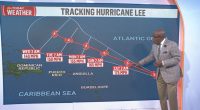EXPERTS have believed that communication on Earth will be mostly technological in 2120 – a trend that could help us detect aliens.
Digital data on our planet is growing at unprecedented rates, a new study has found.
Specifically, studies have found that 328.77million terabytes of data are created each day.
The space where this data usage and growth exists is known as the technosphere.
Earth’s biosphere, however, refers to the spaces on our planet occupied by living organisms.
Now, this new study posits that if data usage continues to grow at this rate, our technosphere will eventually overtake our biosphere.
This shift suggests that in less than a century’s time, our modes of communication will be mainly technological.
And this could affect our ability to locate extraterrestrial intelligence in far away distances.
Brian Koberlein explained further for Universe Today: “Data is exchanged at the physical level.
“Whether through chemical interactions, optical fiber, or electrical circuits, all data takes power to create and maintain.
Most read in News Tech
“Currently, this energy is centered on biosphere data, but it could become dominated by technosphere data in the blink of a cosmic eye.”
Koberlein noted that if this shift is common for advanced civilizations, then humans should be looking for intelligent life through a technological lens, not a biological one.
“We therefore might be able to distinguish the worlds of an alien civilization by looking for a distinctly synthetic thermal signature,” he added.
But while this trend may be good for helping us locate alien life, Koberlein also discussed the negative impact it will have on Earth.
“Humans already have a tremendous influence on Earth’s biodiversity and global temperatures,” he noted.
“If we continue our trend of exponential growth, we could significantly diminish the data resources for non-human life,” he continued.










